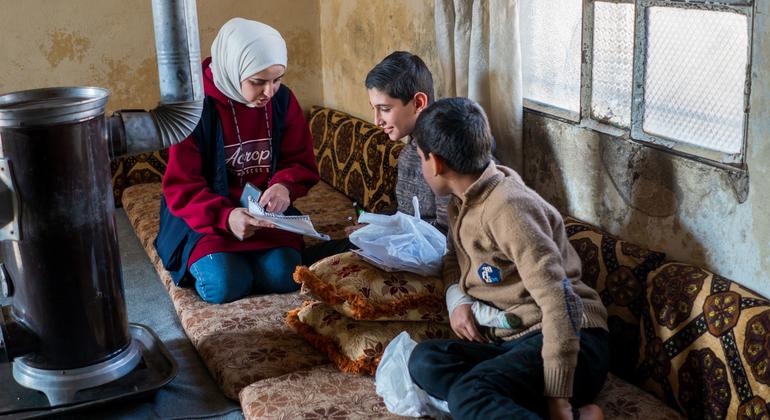In a heartfelt and urgent plea to the international community, United Nations Secretary-General Antonio Guterres emphasized the critical need for humanitarian aid in war-torn Syria. Speaking at the conference “Standing with Syria: Meeting the Needs for a Successful Transition,” organized by the European Union in Brussels, Guterres described the current situation in Syria as a “watershed moment.” He stressed that the future of the country hinges on providing essential services such as food, shelter, healthcare, and sustainable livelihoods to the Syrian people.
The humanitarian crisis in Syria is staggering, with over two-thirds of the population requiring urgent assistance. However, vital aid efforts are at risk due to severe underfunding. The UN-coordinated humanitarian response for Syria, totaling $1.25 billion, is only 12.5 percent funded. This lack of funding has left critical sectors such as shelter, non-food relief, water and sanitation, and agriculture and nutrition struggling to meet the needs of the Syrian people.
Guterres called on donors to step up their support and reconsider any funding cuts that may hinder humanitarian operations in Syria. He emphasized the importance of investing in Syria’s recovery, addressing sanctions and other restrictions, and supporting an orderly and inclusive political transition. Guterres appealed to the international community to work together to help the people of Syria as they strive for a free, prosperous, and peaceful future.
The Secretary-General’s call to action was echoed by UN Emergency Relief Coordinator Tom Fletcher, who warned of a severe funding gap facing humanitarian operations in Syria. Fletcher emphasized the need for urgent and decisive action, stating that the people of Syria need more than just commentary and observation – they need tangible support and assistance.
Despite the challenges and funding gaps, the UN has made progress in reaching millions of Syrians with humanitarian aid. More humanitarian convoys have entered Syria from Türkiye this year than in the entire previous year, and aid is now reaching areas that were previously inaccessible due to conflict. However, ongoing funding cuts threaten to undermine these achievements, putting essential services at risk of collapse.
UN High Commissioner for Refugees Filippo Grandi highlighted a significant development in Syria – the return of Syrian refugees. Since the fall of the Assad regime in December 2024, over a million displaced Syrians have returned home, including 350,000 from neighbouring countries. Surveys indicate that up to 3.5 million more refugees could return in the coming months. However, Grandi cautioned that without adequate support, these returns may not be sustainable.
Grandi emphasized the importance of helping returning refugees stay in Syria, warning of disastrous consequences if they are unable to rebuild their lives in their homeland. The UN High Commissioner stressed the need for continued international support to ensure the successful reintegration of returning refugees and to prevent further destabilization in the region.
The situation in Syria remains dire, with millions of people in need of humanitarian assistance and support. The international community must heed the calls of Guterres, Fletcher, Grandi, and other UN officials to step up their efforts, provide necessary funding, and work together to help the people of Syria rebuild their lives and secure a better future for themselves and their country. The time to act is now, before the humanitarian crisis in Syria escalates further and more lives are lost or destroyed.









